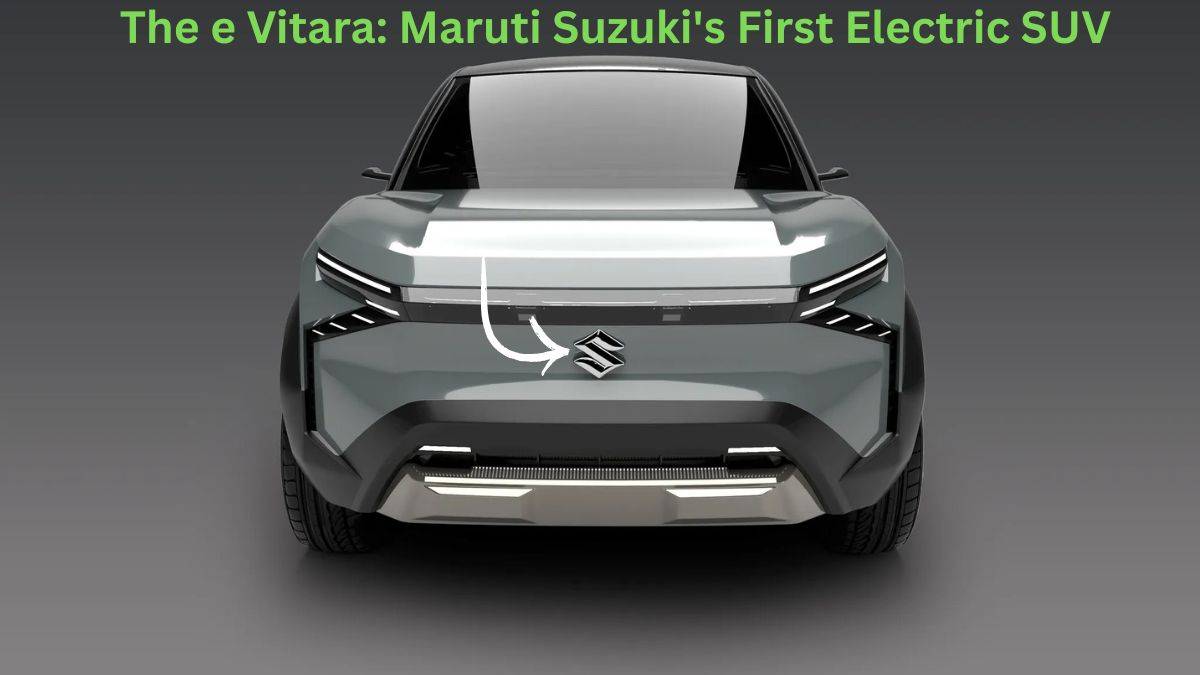While many car companies are moving away from diesel, GWM is taking a different path. GWM is a Chinese car manufacturer. They are developing a new, powerful 3.0-liter turbo-diesel engine. This engine is for their biggest vehicles. This news might surprise some people.
GWM’s Diesel Strategy: Going Against the Trend
Most car brands, especially in Europe, are reducing their focus on diesel. Stricter emission rules are a major reason. However, GWM believes diesel still has a future. They are investing in new diesel technology.
The New 3.0-Litre Turbo-Diesel Engine
GWM‘s new engine is a 3.0-liter turbo-diesel. It’s designed to provide more power for larger vehicles. It will be a four-cylinder engine. This means it won’t be a V6 or an inline-six.
Power and Performance
The current GWM Cannon Alpha has a 2.4-liter turbo-diesel engine. It produces 135kW of power and 480Nm of torque. The new 3.0-liter engine will be more powerful than this. However, it’s not clear yet if it will match the power of engines like the Ford Ranger’s V6 diesel, which produces 184kW.
Vehicles Getting the New Engine
GWM plans to use the new engine in several of its large vehicles:
GWM Cannon Alpha ute: This is one of GWM’s pickup trucks.
GWM Tank 500 SUV: This is a sport utility vehicle. GWM will produce the first-ever diesel version of this model.
GWM Tank 700 SUV: This is a larger, flagship off-road SUV sold in China. It might also be introduced in Australia.
Timing of the New Engine
The new 3.0-liter diesel engine is expected to be available in showrooms in 2027. This gives GWM time to refine the engine and prepare for its release.
GWM’s Focus on Torque
GWM emphasizes the importance of torque, especially for SUVs and off-road vehicles. Torque is the rotational force that helps vehicles tow heavy loads and perform well in off-road situations. GWM believes that high torque is essential for the Australian market.
Why GWM is Sticking with Diesel
GWM has several reasons for continuing to develop diesel engines:
Fuel efficiency: Diesel engines are generally more fuel-efficient than gasoline engines.
Towing capability: Diesel engines provide high torque, which is beneficial for towing.
Emissions policy: GWM believes that diesel, along with other technologies like hybrids and electric vehicles, can help balance emissions requirements.
GWM’s Broader Powertrain Strategy
GWM is not only focused on diesel. They are also developing other types of powertrains, including:
Plug-in hybrid electric vehicles (PHEVs): These vehicles have both a gasoline engine and an electric motor and can be plugged in to charge.
Hybrid electric vehicles (HEVs): These vehicles also have a gasoline engine and an electric motor, but the battery is charged by the engine and regenerative braking.
Electric vehicles (EVs): These vehicles run entirely on electricity.
GWM aims to offer a variety of powertrain choices to meet different customer needs and environmental regulations.
GWM’s Position in the Market
GWM is positioning itself as a company that provides customers with choices. They are not forcing customers to choose only one type of powertrain. This approach allows GWM to cater to a wider range of buyers.
The 2.4-Litre Turbo-Diesel Engine
GWM has also developed a new 2.4-liter turbo-diesel four-cylinder engine. This engine is more powerful than their existing 2.0-liter diesel. The 2.4-liter engine produces 135 kW of power and 480Nm of torque.
Comparison with Competitors
GWM’s new 2.4-liter diesel engine is competitive with other engines in its class. It offers more power and torque than GWM’s previous 2.0-liter diesel. It is also close in performance to some competitor engines, such as the Toyota Hilux GR Sport’s 165kW/550Nm four-cylinder diesel and the Ford Ranger’s 184kW/600Nm 3.0-liter diesel V6. Isuzu and Mazda are currently the only brands in Australia offering a 3.0-liter four-cylinder turbo-diesel ute, but their engine has lower outputs (140kW and 450Nm) than GWM’s new engine.
GWM Diesel Engine Specifications
| Engine | Power (kW) | Torque (Nm) |
| 2.0-liter turbo-diesel | 120 | 400 |
| 2.4-liter turbo-diesel | 135 | 480 |
| 3.0-liter turbo-diesel (estimated) | 169 | 600 |
The Future of Diesel at GWM
GWM’s commitment to diesel suggests that the company sees a continued role for this technology in the automotive market. They are investing in new diesel engines and incorporating diesel into their future vehicle plans. This strategy sets them apart from many other manufacturers who are shifting their focus to electric and hybrid vehicles.
GWM’s Vehicle Lineup
To understand GWM’s diesel strategy, it’s helpful to know more about their vehicle lineup:
GWM Cannon/GWM Ute: This is GWM’s pickup truck. It is available in different versions, including the Cannon and the larger Cannon Alpha.
GWM Tank: This is GWM’s SUV brand. It includes models like the Tank 300, Tank 500, and Tank 700.
These vehicles are designed for various purposes, including work, family transportation, and off-roading.
The Australian Market
The Australian market is important to GWM. GWM is carefully considering the specific needs and preferences of Australian customers. This includes the demand for high-torque engines for towing and off-road driving.
Emissions Regulations
GWM is aware of the increasing importance of emissions regulations. They are working to balance the performance and efficiency of their vehicles with the need to meet environmental standards. GWM believes that offering a range of powertrain options, including diesel, hybrids, and electric vehicles, is a good approach to managing emissions.
Customer Choice
GWM emphasizes the importance of giving customers choices. They want to provide a variety of powertrain options so that buyers can select the vehicle that best suits their needs and preferences. This approach contrasts with some manufacturers who are focusing primarily on electric vehicles.
The Role of Diesel in the Future
The future of diesel in the automotive industry is a subject of debate. While some believe that diesel’s days are numbered, GWM’s strategy suggests that the company sees a continued role for diesel, particularly in trucks and SUVs where torque and towing capability are important.
GWM’s Innovation
GWM’s development of new diesel engines demonstrates their commitment to innovation. They are not simply abandoning diesel but are instead working to improve its performance and efficiency. This approach could give them a competitive advantage in certain market segments.
Global Automotive Trends
It’s important to consider GWM’s diesel strategy in the context of broader global automotive trends. The industry is undergoing a major transformation, with a growing emphasis on electrification and sustainability. However, different markets have different needs and preferences, and GWM’s approach reflects this diversity.
The Importance of Torque
Torque is a crucial factor in many driving situations. It is particularly important for:
Towing: High torque is necessary for pulling heavy loads.
Off-roading: Torque helps vehicles climb steep inclines and navigate challenging terrain.
Hauling: Torque is essential for carrying heavy loads in a truck or SUV.
GWM’s focus on torque reflects the needs of customers who use their vehicles for these purposes.
GWM’s Long-Term Strategy
GWM’s decision to continue developing diesel engines is likely part of a long-term strategy. The company is positioning itself to cater to a range of customer needs and to adapt to evolving market conditions. This long-term perspective is important in the rapidly changing automotive industry.
Challenges and Opportunities
GWM faces both challenges and opportunities with its diesel strategy. The challenges include meeting increasingly stringent emissions regulations and overcoming the negative perception of diesel in some markets. The opportunities include appealing to customers who need high-torque vehicles and gaining a competitive advantage by offering a wider range of powertrain options.
The Future of GWM
GWM’s success will depend on its ability to navigate these challenges and capitalize on the opportunities. The company’s commitment to innovation, its focus on customer choice, and its long-term perspective are all important factors.
What is the price of Tank 300 in India?
The documents focus on the Australian market. They do not provide information about the price of the Tank 300 in India.
What is the power of GWM Tank 300?
The documents primarily discuss the 3.0-liter diesel engine being developed for other GWM models like the Tank 500 and Cannon Alpha. Specific power figures for the Tank 300’s diesel or other engine options are not consistently detailed.
What is the specs of GWM Tank 300?
The documents mention diesel power being added as an option, but detailed specifications of the GWM Tank 300 are not the primary focus.
Who makes GWM diesel engines?
The documents indicate that GWM is developing its diesel engines.
What is the fuel consumption of Tank 300?
The documents discuss fuel consumption in the context of GWM’s engine strategy, noting diesel’s good fuel consumption, but do not give specific fuel consumption figures for the Tank 300.









